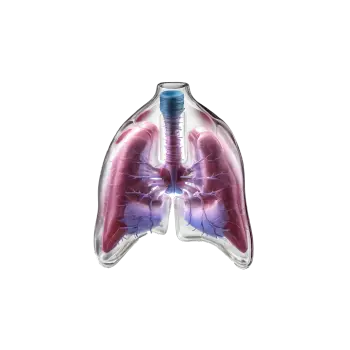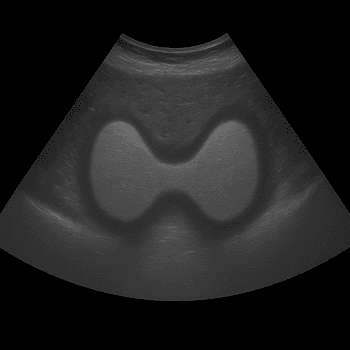Quick version
An enlarged thyroid gland, also called a goiter, can be caused by several things, such as iodine deficiency, hypothyroidism, hyperthyroidism, pregnancy, or inflammation. Common symptoms include swelling in the neck, a feeling of pressure, fatigue, weight changes, and hormonal imbalance. It is not always dangerous, but can affect your health and impair your quality of life.
You can detect signs yourself – but a blood test that measures TSH, T3, and T4 gives a clearer picture of your hormonal balance. Ultrasound can show whether the gland is enlarged or contains nodules.
Seek medical attention if you have a swollen neck, difficulty swallowing or breathing, or suspected hormonal symptoms. Want to find out how your thyroid is doing? Read on to see what different types of tests you can do.
What is an enlarged thyroid gland?
The thyroid gland, located at the front of the neck just below the larynx, is a butterfly-shaped organ. When the thyroid becomes enlarged, it can be due to several different causes such as iodine deficiency or autoimmune conditions like hypothyroidism. This condition is known as goiter.
An enlarged thyroid is not always dangerous, but it can affect hormone balance and quality of life for those who experience it.
Common symptoms of an enlarged thyroid gland
The symptoms of an enlarged thyroid vary depending on whether it produces too little, too much, or a normal amount of hormones. Common signs that your thyroid may be enlarged include:
- A visibly or palpably enlarged neck
- A feeling of pressure or a lump in the throat
- Hoarseness or difficulty swallowing
- Dry skin and sensitivity to cold (in hypothyroidism)
- Fatigue and weight gain
- Heart palpitations and sweating (in hyperthyroidism)
- A persistent cough without explanation
Many people with an enlarged thyroid first seek help because they notice a lump on their neck or experience persistent fatigue and weight gain.
6 causes of an enlarged thyroid gland
There are several possible causes, including:
- Iodine deficiency – common worldwide, but rare in Sweden thanks to iodized salt.
- Hypothyroidism – low production of thyroid hormones.
- Hyperthyroidism – an overactive thyroid gland.
- Pregnancy – hormonal changes can affect thyroid size.
- Inflammation (thyroiditis) – sometimes occurring after viral infections.
- Nodules or cysts – benign or, in rare cases, cancerous.
How do I know if my thyroid is enlarged?
It is not always easy to detect on your own, but here are some signs worth paying attention to:
- Your neck feels swollen or thick
- You have seen images of goiter and think your neck looks similar
- You experience other symptoms of hormone imbalance such as low energy, constipation, or weight gain
A useful tool is to measure your thyroid hormone levels through a blood test, which can show your levels of:
- TSH – thyroid-stimulating hormone from the pituitary gland
- T3 and T4 – active thyroid hormones
An elevated TSH together with a low T4 often indicates hypothyroidism (underactive thyroid gland). Read more about thyroid tests here.
To assess the size and structure of the thyroid gland, for example if there is a suspicion of goiter or nodules in the thyroid gland, you can also supplement with thyroid ultrasound. The ultrasound can see if the gland is enlarged, if there are cysts or nodules and if these need to be followed up further.
What does an enlarged thyroid gland look like?
Many people search for pictures of enlarged thyroid gland images to compare. This is what an enlarged thyroid gland can look like, as a rounded swelling on the lower part of the throat – sometimes this is only visible when swallowing.

Remember that a doctor should always assess the appearance. A swollen neck can also be due to other causes, such as enlarged lymph nodes.
When should you seek medical attention?You should seek medical attention if you experience any of the following:
- Visible swelling of the neck
- Having difficulty breathing or swallowing
- Experience unusual fatigue, chills easily, or weight gain
- Have been told that your TSH is high or low
Curious about how your thyroid is doing? Order a thyroid test here – get answers quickly and gain insight into your health.

























